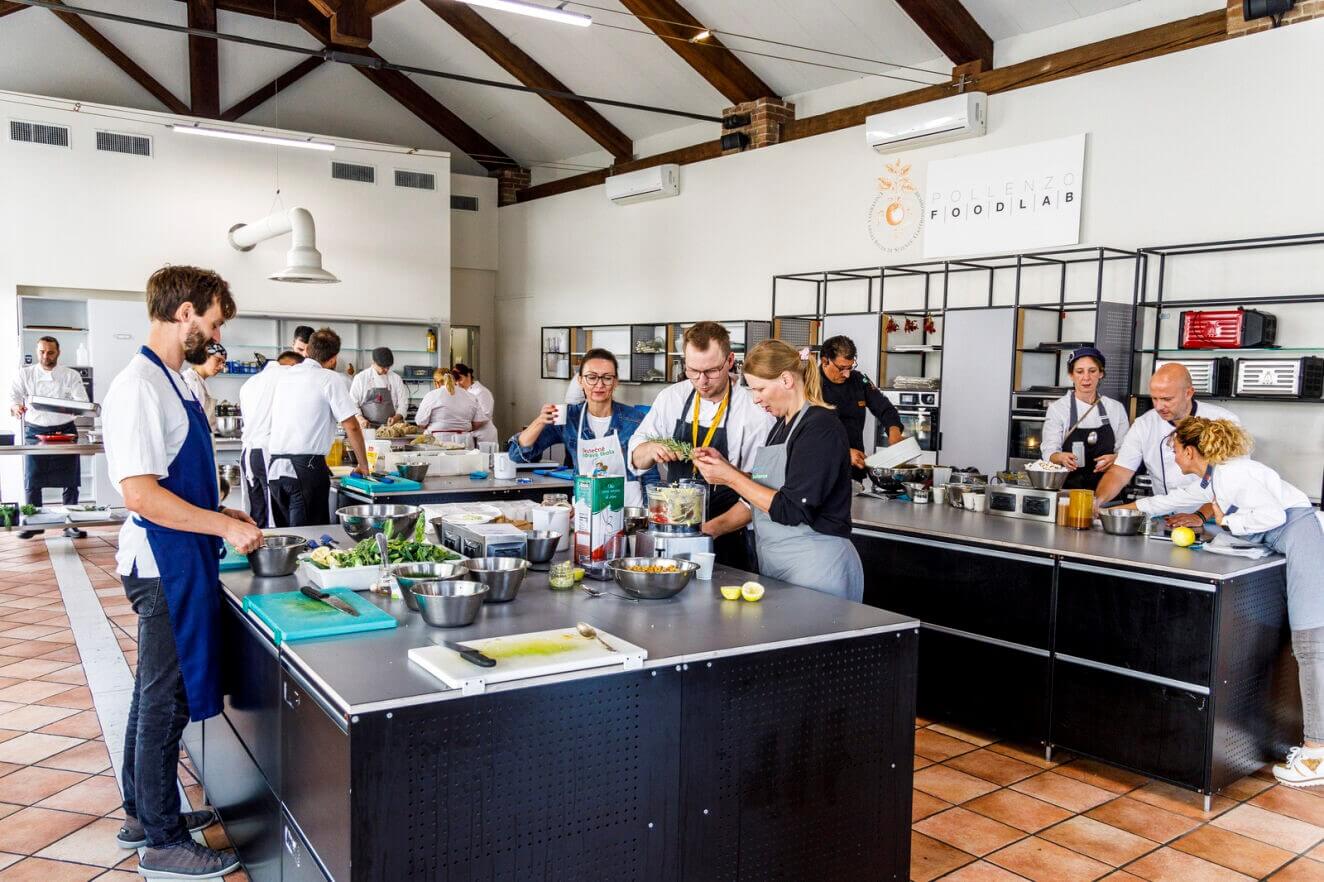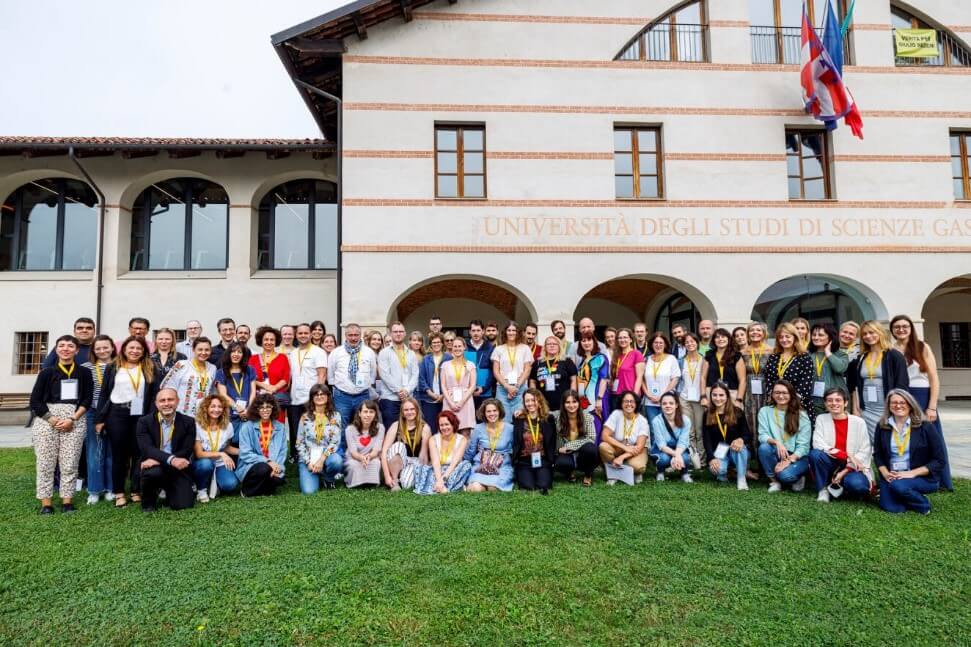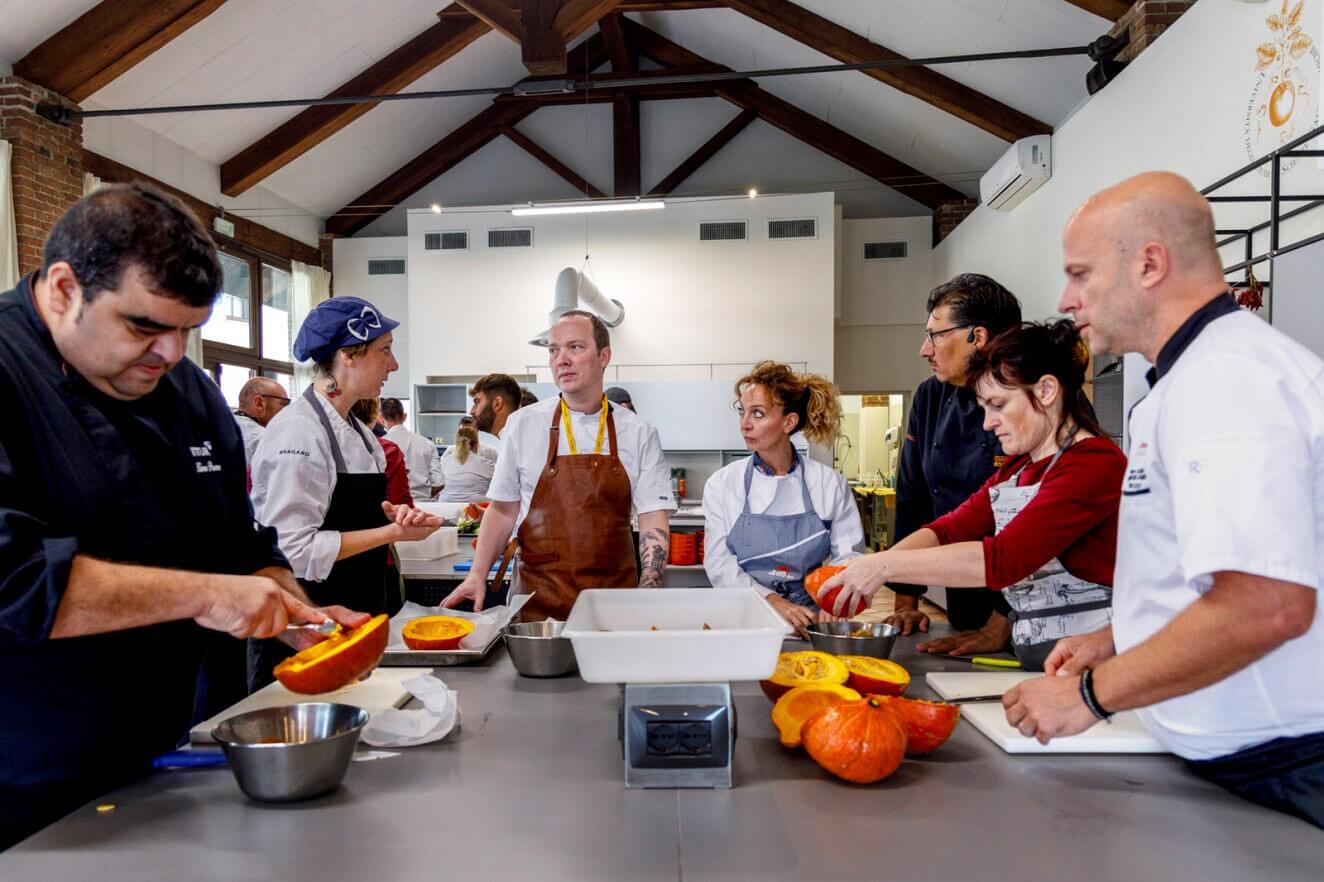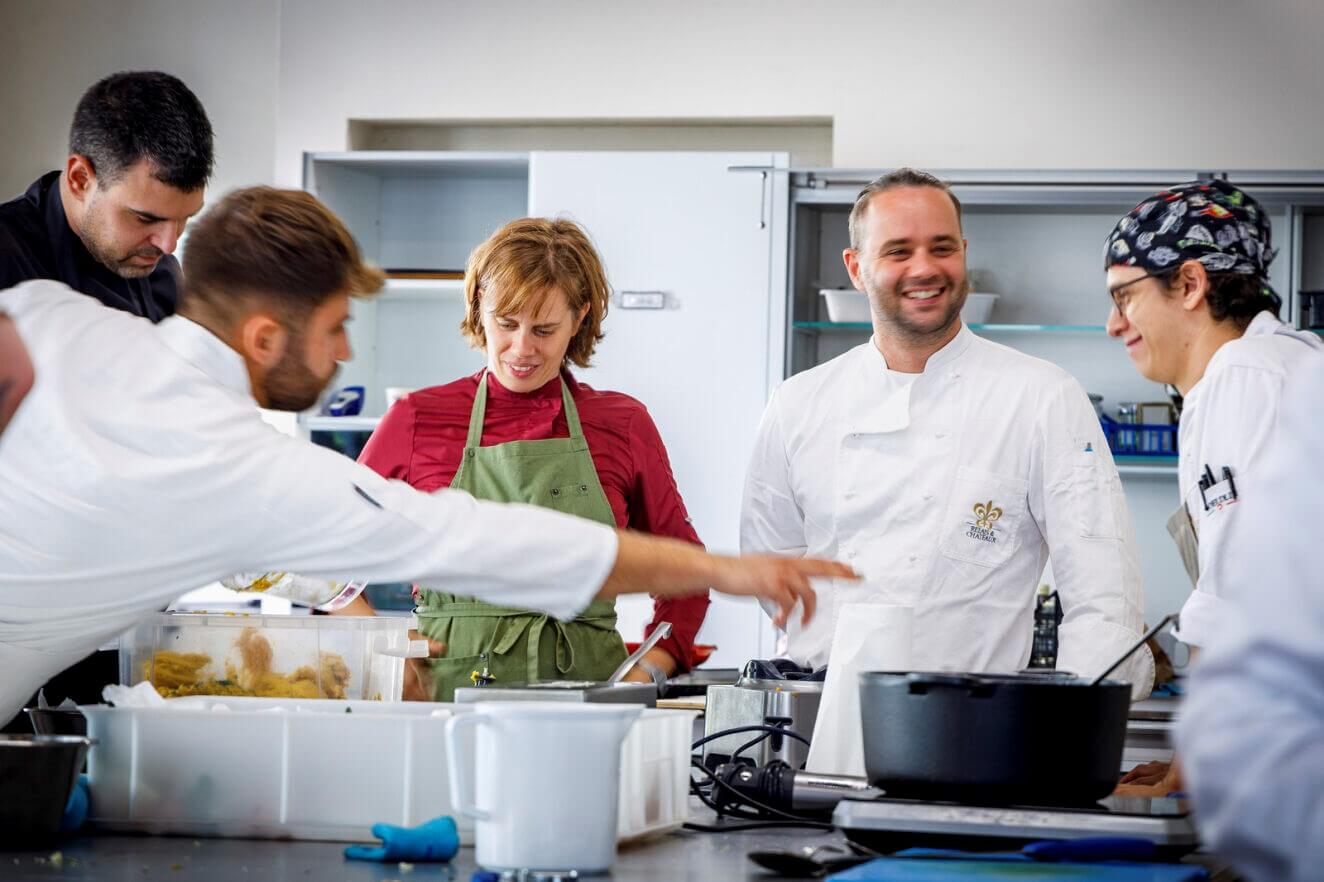A training course involving more than 70 people from the 12 SchoolFood4Change participating countries was held from 2nd to 6th October 2023 in Pollenzo, Italy with the incentive to improve and enhance school meals, uplift cooks, and canteens through addressing the promotion of “planetary health diets & cooking”.
The participants included 22 chefs, 23 urban food enablers and 10 food ambassadors, who in turn will train the school restaurant personnel in their cities as part of the multiplication phase of 2024 and 2025, transferring and adapting the message and content learned. In this phase replication trainings will be held in each participating project city, known as train-the-trainer events. Further on, the school food personnel along with the skills and competences of the teachers and educators will contribute to enforce the sustainability transition of the school food system.



Addressing questions and exploring dimensions of sustainable school food systems
Although the need for a more sustainable school food system is acknowledged within the SchoolFood4Change project, it is not as obvious of how to concretely to this while increasing its beneficial health aspects, palatability, and inclusiveness. The training course was set out to explore this area in line with three dimensions: Food preferences, progressive exposure & circular cooking, and active learning.
Examples of questions that were covered during the training:
- How can the consumption of animal protein be reduced in favor of vegetable protein, ensuring the acceptability of this change?
- What actions can be taken in a school canteen to prevent food waste?
- How can recipes and menus be rethought according to a progressive learning path that also looks at the education of the palate?
- What processes best to be applied to improve food acceptability?
- How is it possible to root healthy eating habits and make them endure over time, starting from the daily experience of the school step?
- How can collaboration be fostered between those working in the canteen and with parents to ensure that this learning is reinforced in the school-family dialogue?
The course set out to answer these questions, focusing on three dimensions in particular:
Dimension 1
Food preferences
How do our senses work? Learn about taste, aroma, appearance, touch, and their combinations to choose appropriate culinary techniques to enhance sensory perception.
Dimension 2
Progressive exposure and circular cooking
The role of recipe and menu design in gradual exposure to a healthier and more sustainable diet and the application of circular economy principles in managing raw material to prevent and avoid food waste.
dimension 3
Active learning
How and why to use the school meal as a teaching module for taste education and improving food literacy with the direct engagement of school children and with the collaboration of all the school canteen staff and the families.
Realization and outcomes of the training course
The dimensions are cutting across various disciplines to investigate sustainable school food systems holistically. The collaborative training course involved several partners (Eating City, Slow Food, Rikolto and Iclei) together with professors and lectures from the University of Gastronomic Sciences, alongside with international guests.
During the course, lectures, inspirational talks, practical activities in the Food Lab took place, which ultimately led to the design of a menu and preparation of a pilot lunch on the last day of the training for all the participants to the SF4C week training. The formulated menu consisted of 3 dishes: romanesco as a starter, pumpkin on a wrap as main course and famousse pumpkin as dessert. Besides being an expression of the participants’ high level of professionalism, creativity, and ability to get involved, this demonstrated that it is possible to create a sustainable, nutritious, and delicious meal, and that this approach is transferable to school catering. The exchange was bidirectional: the high level of commitment and competence of the participants allowed for deep exchanges that challenged and enriched the whole group, participants, and trainers alike.
During the training hours as well as during the social dinner, cooks, urban food enablers and food ambassadors built up the connection that will allow them to form strong teams for carrying out successfully the multiplication training in every partner country.
How will this training course contribute to the future work of the SchoolFood4Change project?
The training course was a great opportunity for knowledge exchange between the participants, coming from different backgrounds and educations, resulting in a collective intelligence. Added support mechanism in the form of a peer-network as well as a greater understanding for the mission – leading up to the multiplication trainings. The idea of the course was to further educate and empower the participants, who could further spread their knowledge – acting as catalysts of change for the transition of the school food system.
The course is currently concluding with the delivery of the online session. From January 2024, the multiplication phase will begin, integrating the other actions the cities are implementing on the procurement and education front through the Whole School Food Approach to favor the creation of an enabling environment to accompany and support the transition of the school meal.
